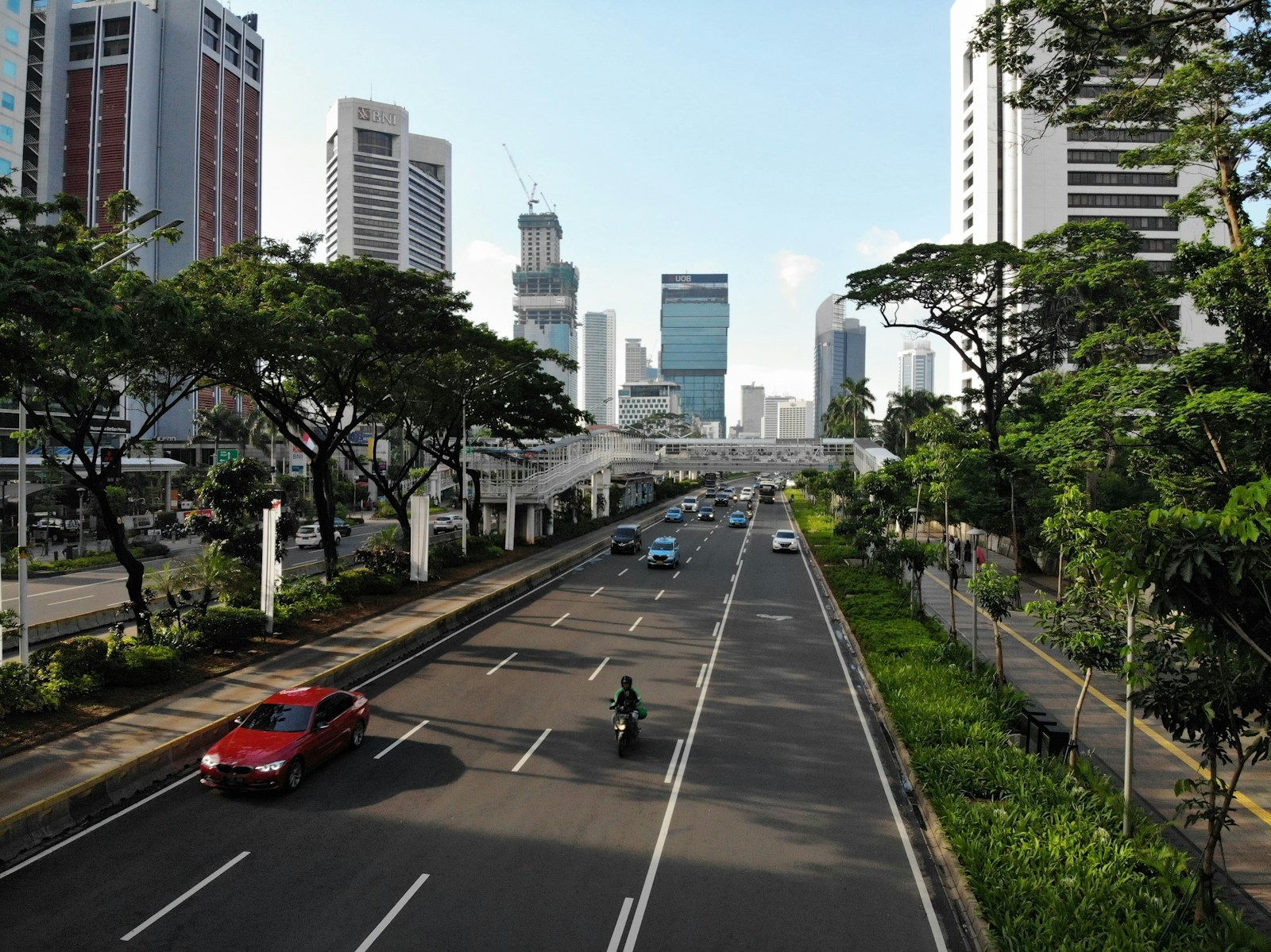Luxurious eco-friendly materials are increasingly becoming the preferred choice for home decor enthusiasts aiming to elevate their living spaces while reducing their environmental footprint.
From reclaimed wood and bamboo to recycled glass and organic cotton, these materials offer a blend of opulence and sustainability that appeals to the modern conscious consumer.
The versatility and elegance of sustainable materials present endless possibilities for creating stylish and eco-friendly interiors. Whether it’s a reclaimed wood dining table adding warmth and character to a room or organic linen bedding infusing a sense of tranquility, these luxurious elements harmoniously merge aesthetics with eco-consciousness, proving that sustainability and sophistication can seamlessly coexist in home decor.
Innovative Energy-Efficient Technologies for Sustainable Living
As society shifts towards sustainability, the demand for innovative energy-efficient technologies in the realm of residential living continues to grow. Smart home systems that monitor and optimize energy consumption have become increasingly popular among environmentally-conscious homeowners. These systems can regulate lighting, heating, and cooling to minimize energy waste, ultimately reducing utility bills and carbon footprints.
In addition to smart home solutions, solar power technology has revolutionized the way we harness energy. Solar panels can be installed on roofs or in yards to capture sunlight and convert it into electricity, providing a clean and renewable energy source for homes. By investing in these energy-efficient technologies, individuals can not only reduce their environmental impact but also contribute to a more sustainable future.
Fashion Forward Sustainable Clothing Brands
Within the realm of sustainable fashion, clothing brands have been making significant strides towards minimizing their environmental impact while still offering trendy and ethical pieces. These brands prioritize using eco-friendly materials such as organic cotton, bamboo, hemp, and recycled textiles in their collections. By incorporating these materials into their designs, they are able to create stylish clothing without compromising on sustainability.
Furthermore, many sustainable clothing brands actively support fair labor practices and transparency in their supply chains. They prioritize working with ethically certified factories and artisans to ensure that their garments are produced under fair working conditions. By championing these values, these brands not only promote sustainable practices but also uphold the rights and well-being of the individuals involved in the production process.
Green Beauty: Natural and Organic Skincare Products
Organic skincare products have seen a trend of growth in recent years as consumers become more conscious of the ingredients they put on their skin. Natural ingredients like aloe vera, coconut oil, and shea butter are becoming staples in skincare formulations, known for their nourishing and hydrating properties. These products not only benefit the skin but also align with environmentally friendly practices, making them a popular choice for those seeking healthier alternatives.
With the rise of green beauty movements, more brands are focusing on sustainable packaging and ethically sourced ingredients. This shift towards eco-conscious practices not only benefits the planet but also resonates with consumers who prioritize transparency and ethical production methods. From cruelty-free testing to recyclable packaging, the green beauty sector is paving the way for a more sustainable approach to skincare that is both luxurious and environmentally friendly.
Eco-Friendly Travel Tips for the Modern Jetsetter
One of the key aspects of being a modern jetsetter is the ability to travel in a way that minimizes your environmental impact. When planning your next getaway, consider opting for a direct flight whenever possible. Direct flights contribute less to carbon emissions compared to multiple layovers. Additionally, choosing eco-friendly accommodation options such as hotels with green certifications or eco-lodges can further reduce your carbon footprint during your stay.
Another smart tip for eco-conscious travelers is to pack light and pack smart. By traveling with fewer items, you not only lower the weight on the plane, thus reducing fuel consumption, but you also make your journey more manageable and stress-free. Invest in reusable items like water bottles, utensils, and shopping bags to minimize single-use plastic waste while on the go. Embracing a minimalist approach to packing not only benefits the environment but also allows you to focus more on experiences rather than material possessions during your travels.

Sustainable Fine Dining: Farm-to-Table Restaurants
Farm-to-table restaurants have revolutionized the dining experience by prioritizing locally sourced ingredients, thus reducing the carbon footprint associated with food transportation. By establishing direct relationships with nearby farmers and producers, these establishments ensure a fresher and more sustainable menu for patrons. This commitment to supporting the local community not only enhances the dining experience but also promotes environmental stewardship.
The farm-to-table movement not only emphasizes the importance of fresh, seasonal ingredients but also celebrates the diversity of flavors and culinary traditions found within a specific region. This approach not only fosters a greater appreciation for the food on one’s plate but also highlights the rich tapestry of local agriculture and artisanal products. Through promoting sustainability and fostering a deeper connection to the food we eat, farm-to-table restaurants are not just places to dine but hubs of education and inspiration for a more conscious way of living.
Creating a Chic and Eco-Friendly Wardrobe
Building a wardrobe that is both stylish and environmentally conscious is becoming increasingly popular in today’s fashion landscape. Embracing sustainable fashion choices not only helps to reduce our carbon footprint but also supports ethical and eco-friendly practices within the industry. By opting for clothing made from organic materials such as bamboo, hemp, or organic cotton, you can create a chic wardrobe that aligns with your values of sustainability.
In addition to choosing garments made from eco-friendly materials, consider investing in pieces that are timeless and versatile. Building a capsule wardrobe with high-quality, durable items that can be mixed and matched effortlessly will not only reduce the need for constant shopping but also promote a more sustainable approach to fashion consumption. Embrace minimalist and classic designs that transcend seasonal trends, ensuring that your chic and eco-friendly wardrobe stands the test of time.
Luxury Eco-Friendly Home Design Trends
The demand for luxury eco-friendly home design trends is on the rise as more homeowners seek to create sophisticated living spaces that are also environmentally sustainable. Incorporating high-end, sustainable materials such as bamboo flooring, reclaimed wood, and low-VOC paints can elevate the aesthetic appeal of a home while reducing its carbon footprint. Integrating energy-efficient appliances and smart home technology not only adds a touch of modernity but also contributes to lower energy consumption and utility costs.
Furthermore, incorporating large windows and skylights into the design allows for natural light to flood the interiors, reducing the need for artificial lighting during the day. Coupled with well-insulated walls and energy-efficient HVAC systems, luxury eco-friendly homes can achieve a harmonious balance between comfort, style, and sustainability. By choosing eco-conscious design elements and practices, homeowners can enjoy the best of both worlds – a lavish living environment without compromising on their commitment to a greener future.
Mindful Consumption: How to Shop Responsibly
Consumers today have the power to make a difference through their buying choices. Being mindful about where and how you shop is crucial in promoting sustainable practices and ethical production. One way to shop responsibly is by researching brands and products to ensure they align with your values and support fair trade, eco-friendly initiatives, and ethical labor practices.
Additionally, embracing a minimalist approach to shopping can significantly reduce waste and unnecessary consumption. By focusing on quality over quantity and investing in items that are versatile and durable, you can build a timeless wardrobe or home decor collection that transcends fleeting trends. Prioritizing conscious consumption not only benefits the environment but also encourages a shift towards a more sustainable and ethical industry overall.
The Intersection of Sustainability and Luxury in Modern Living
In contemporary society, the fusion of sustainability and luxury has become a prominent theme in modern living. This marriage between opulence and eco-consciousness has paved the way for innovative approaches to design, fashion, technology, and lifestyle choices. The essence of this intersection lies in the harmonious coexistence of high-end quality and environmentally friendly practices, catering to a discerning clientele that seeks to make a positive impact on the planet without compromising on luxury.
Luxury brands and designers are increasingly embracing sustainable materials, ethical production methods, and eco-friendly practices to cater to the growing demand for conscious consumerism. From luxurious eco-friendly home decor crafted from recycled or upcycled materials to fashion-forward sustainable clothing brands using organic textiles and innovative energy-efficient technologies for sustainable living, the integration of sustainable practices into luxury goods and services has redefined the concept of modern luxury. This shift towards mindful consumption reflects a changing mindset among consumers who prioritize ethical values and environmental responsibility in their purchasing decisions.

21mxs0
2i28ab